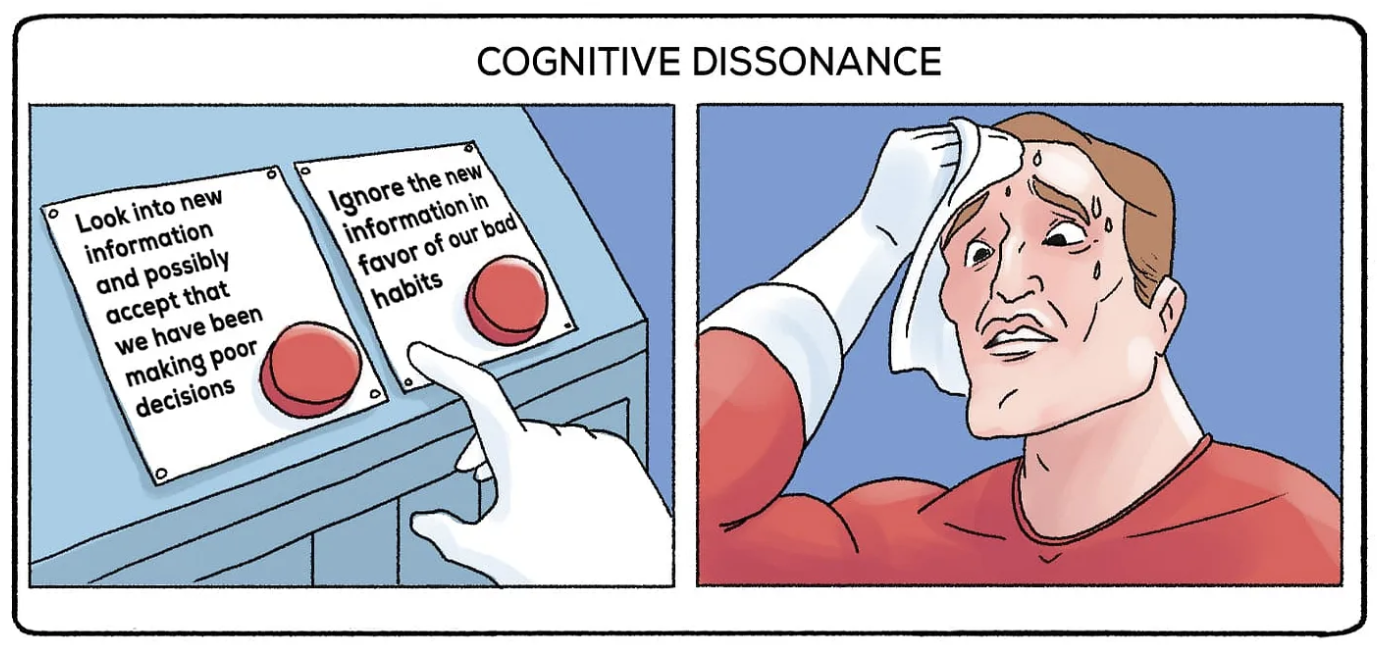What do coaching, cognitive dissonance and technology have in common?
Several years ago, I was comfortable. I was happy coaching and training on subjects in leadership, high performance and mindset. I loved working with people and enjoyed the human touch in what I did. I had no ambition of being in technology. Here I am, 3 and a bit years on, and I’m the Co-founder of a tech startup that helps people who are exactly like me, bring their ideas to life and embrace AI into their business model.
Only recently do I realise that back when I was coaching, and looking at tech through a more negative lens, I was likely conflicted through my cognitive dissonance.
In the rapidly evolving landscape of personal and professional development, coaches and trainers find themselves at a crossroads, facing the pressing question of whether to integrate Generative AI into their traditionally human-centric, holistic practices. This emerging dilemma has introduced a palpable sense of cognitive dissonance within the industry—balancing the undeniable benefits of technological advancement with the deeply rooted principles of personal connection and holistic understanding.
Many practitioners hold a valid concern that AI might dilute the authenticity of their services. The holistic approach is all about seeing the client in their entirety and understanding their emotional, psychological, and physical dimensions in a way that machines currently cannot fully replicate. The fear is that introducing AI could undermine these personal connections, which are often the cornerstone of effective coaching and training.
However, the cognitive dissonance arises when considering the remarkable capabilities of AI. These technologies excel in areas where human limitations are pronounced, particularly in handling data-intensive tasks with efficiency and accuracy. AI's potential to enhance coaching effectiveness is vast—from tracking progress and analysing emotional states through sophisticated language processing to customising learning materials dynamically to meet each client's unique needs. It gives immense opportunity for scale within a coach's practice as well, able to add in an additional layer of offers that might be affordable to people, who couldn’t maybe afford the coaching ticket itself.
The discomfort that comes with adopting AI is, at its core, a fear of the unknown and a perceived threat to traditional methods. Yet, this is where growth happens. Coaches and trainers are encouraged to become comfortable with the discomfort, recognising that embracing AI does not equate to abandoning the human element. Instead, it's about augmenting human capabilities—leveraging technology to enhance service delivery and improve client outcomes.
For instance, AI-powered tools can provide deep insights into a client’s progress that might otherwise take longer to discern through traditional observation and discussion. Moreover, AI can support clients between sessions with virtual coaching, ensuring they remain engaged and continue to progress towards their goals.
Integrating AI into coaching and training doesn't mean replacing the art of human interaction but rather complementing it. It's about finding ways to incorporate these tools thoughtfully, ensuring they add value and support rather than overshadow the human touch. This approach not only broadens the toolkit available to coaches and trainers but also expands their reach and impact, potentially transforming personal development into a more accessible and effective practice for a broader audience.
The journey toward integrating AI is about balance. It requires finding the right mix where technology supports and amplifies human expertise, rather than diminishing it. For the modern coach or trainer, it means redefining what it means to be holistic by including not only the whole person but also the entire spectrum of tools available to support their journey. This balanced approach could indeed redefine holistic coaching in the age of technology, making it more impactful and inclusive than ever before.
We exist at Loopin, to support coaches and trainers in understanding this new path that is available to them, pointing out where AI plays a significant role in bringing their content and knowledge to life, 24/7.
Interested in transforming your expertise and knowledge into an AI assistant for your business? Then get started for free here and be one of the first to embrace the revolution.


